FEATURED PAPER
By Henry Benson Iwerebor, Christian Chima Nwaogwugwu,
Benedict Amade, Columbus Ikechukwu Anyanwu,
Emmanuel Chinenye Ubani and Kevin Aku Okorocha
Department of Project Management Technology
Federal University of Technology
Owerri, Nigeria
Abstract
This research aims at identifying the factors precipitating corruptible tendencies. The study was guided by the Fraud Triangle Theory. The study used an exploratory and descriptive research design methods of investigation, and a simple random sampling technique was used to select a sample size of 179 from a population of 325 people using the Taro Yamane method of sample size determination from the practitioners in Imo state. The study employed a well-structured standardised questionnaire designed in Likert five-point scales, in addition to personal observations to elicit responses from construction firms and projects situated in Imo State, Nigeria. The questionnaires underwent pre-testing and validation to ensure their reliability. The study utilised various statistical tools such as charts, figures, and descriptive statistics to present the collected data. Additionally, Factor Analysis was employed to analyse the data. The results show that out of the ten (10) variables tested for factor analysis, the findings revealed four clusters named in other of significance as a weak system; lack of transparency; phantom bidding and bid rigging. The study recommends that procurement procedure in Imo State must be tightened to reduce corruption in the construction industry and to also ensure a fraud-free procurement system, public sector agencies must ensure regulations are complied with, apply better procurement policies, and support and encourage industry practitioners to execute procurement functions by procurement regulations and policies.
Keywords: construction projects, corruptible tendencies, factor analysis, Imo State, public sector, Nigeria, procurement.
INTRODUCTION
The term “corruption” derives from the Latin language. The word “com” denotes a sense of togetherness or unity, whereas “rumpere” refers to the act of breaking or shattering. As a result, when an individual engages in corrupt behaviour, it represents a breach of trust with others. Ghahari, Queiroz, Labi, and McNeil (2023) define corruption as any behaviour that prioritises self-interest over the common good in the context of intentional human actions. Corruption is a global threat that affects corporations’ credibility, financial sustainability, and domestic security. Increasing evidence suggests that corruption exists in the development sector, particularly during the procurement phase. According to the literature, corruption has a negative impact on financial outcomes, social services, and infrastructure investments, and it disproportionately affects people from lower socioeconomic backgrounds. This phenomenon has been observed worldwide.
Amoah and Steyn (2018) describe the construction industry as one of the most unethical in the world. The most common forms of corruption are the manipulation of contract allocation for political gain, favouritism and ethical impropriety, and participation in the tender award procedure. Furthermore, regardless of a country’s progress, the construction industry plays an important role in its economic landscape (Nwaogwugwu, 2024).
Several studies have found significant flaws in the procurement process, indicating that value for money is not achieved in the procurement of public infrastructure due to corrupt practices (Adeagbo, 2014).
Procurement is the process of acquiring goods, services, consulting, or work through contractual means such as hiring or purchasing. Bekele, Kedir, Karafo, and Kamfiso (2020). According to the definitions provided above, the overarching goal of procurement is to acquire commodities, labour, advisory services, and other forms of assistance that meet the desired standards, quantity, origin, timing, location, and cost in order to achieve the organization’s goals. The Organisation for Economic Cooperation and Development (OECD) defines procurement as a three-step process that includes identifying the necessary goods or services, selecting the best supplier, and ensuring timely and cost-effective delivery of the goods or services. The OECD emphasises the importance of fair and transparent procurement practices. This definition highlights the importance of procurement in achieving organisational goals. According to Ernest (2018), defilement occurs at all stages of construction, including restricted data encroachments and “taking of drawings” during the planning stage, deceptive practices during the bidding stage, cash affectations (pay off) for overvaluing work performed during the site tasks stage, carelessness in producing low-quality documentation during the production documentation stage, and fraudulent conduct, such as concealing poor workmanship during According to Nwaogwugwu (2024), the development industry is consistently ranked among the most corrupt, with the practice of paying large sums of money to secure or change contracts and circumvent regulations being common.
More…
To read entire paper, click here
How to cite this work: Iwerebor, H. B., Nwaogwugwu, C. C., Amade, B., Anyanwu, C. I., Ubani, E. C., Okorocha, K. A. (2024). Corruptible Tendencies and Public-Sector Construction Project Procurement, PM World Journal, Vol. XIII, Issue X, October/November. Available online at https://pmworldlibrary.net/wp-content/uploads/2024/11/pmwj146-OctNov2024-Iwerebor-et-al-Corruptible-Tendencies-Public-Sector-Construction.pdf
About the Authors
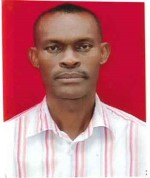
Henry Benson Iwerebor
Federal University of Technology
Owerri, Nigeria
![]()
Henry Benson Iwerebor, MBA, M.Sc is a quantity surveying and project management practitioner with academic affiliations. He possesses an M.Sc. degree in Construction Management and an MBA in Project Management Technology from Imo State University Owerri and the Federal University of Technology, Owerri respectively. A Registered Quantity Surveyor with over (30) years of work experience in the Academic and construction Industry. He is currently at the terminal stage of his doctorate degree programme at the Federal University of Technology, Owerri. He has worked previously as a Foreman, Chief Quantity Surveyor and currently a lecturer with the Cross River University of Technology, Calabar. His professional expertise includes; Contracts Management, Construction Project Management. His mission is to add value to the construction industry by guaranteeing efficient cost management. He can be contacted at henryiwerebor@yahoo.com.
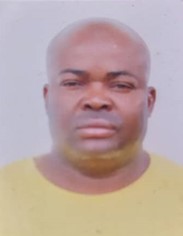
Christian Chima Nwaogwugwu
Federal University of Technology
Owerri, Nigeria
![]()
Christian Chima Nwaogwugwu, MBA is a Chemical engineer and project management practitioner. He possesses an MBA degree in Project Management Technology from the Federal University of Technology, Owerri. A Registered Chemical engineer with over (15) years of work experience in the Oil and Gas Industry. He has worked previously as a Superintendent and supervising engineer in Oil Servicing firms. His professional expertise includes; field supervising engineer. His mission is to add value to the project management and chemical engineering industry. He can be contacted at chris72ng@yahoo.com.
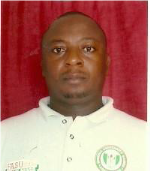
Benedict Amade, PhD
Federal University of Technology
Owerri, Nigeria
![]()
Benedict Amade is a Chartered and Practicing Project Manager by Profession and a Probationer (Member) of Nigerian Institute of Quantity Surveyors (NIQS). He read and obtained a PhD (Doctor of Philosophy) Degree in Project Management Technology from the Federal University of Technology, Owerri, Nigeria. He is a member of the Project Management Institute (PMI) U.S.A. and presently a Senior Lecturer in the Department of Project Management Technology of the Federal University of Technology, Owerri, Nigeria where he has been lecturing for the past 15 years. His areas of research interest include construction project management, computer-based project management, construction supply chain management and information technology on construction projects. He has authored over 50 scientific publications in international refereed journals indexed in Scopus, Web of Science, Scimago etc. He has presented quality papers at international conferences both home and abroad. He is actively involved in other consultancy works. He can be reached at https://orcid.org/0000-0003-3368-5432; benedictamade@yahoo.com; benedictamade@futo.edu.ng; benedictamade2@gmail.com.
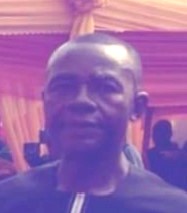
Columbus Ikechukwu Anyanwu, PhD
Federal University of Technology
Owerri, Nigeria
![]()
Columbus Ikechukwu Anyanwu is a Reader in the Department of Project Management Technology, Federal University of Technology, Owerri, Nigeria. He holds a B.Sc, M.Sc, Ph.D in Project Management Technology. His areas of research interest include; Construction Project Management and Industrial Technology.
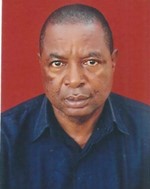
Emmanuel Chinenye Ubani, PhD
Federal University of Technology
Owerri, Nigeria
![]()
Emmanuel Chinenye Ubani is a Professor in the Department of Project Management Technology, Federal University of Technology, Owerri, Nigeria. He holds a B.Sc, M.Eng and Ph.D in Industrial Engineering and Project Management. His areas of research interest include; Engineering Project Management, Materials Requirement Planning. He is member of the Nigerian Society of Engineers (NSE) and Fellow of the Institute of Industrial Administration. Professor Ubani can be reached at drecubani@yahoo.com.
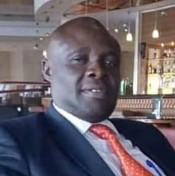
Kevin Aku Okorocha, PhD
Federal University of Technology
Owerri, Nigeria
![]()
Kevin Aku Okorocha is a Professor in the Department of Project Management Technology, Federal University of Technology, Owerri, Nigeria. He holds a B.Sc, Estate Management, M.Sc Project Management Technology, MBA in Banking and Finance, M.Sc Economics and Ph.D in Project Management Technology. His areas of research interest include; Project Financing and Investment, Industrial Economics. He is an Associate member of the Nigerian Institute of Estate Surveyors and Valuers, and a Fellow of the Chartered Institute of Project Managers of Nigeria. Professor Okorocha is currently the Dean of the School of Logistics and Innovation Technology, Federal University of Technology, Owerri, Nigeria. He can be reached at okorocha_kev@yahoo.com.









